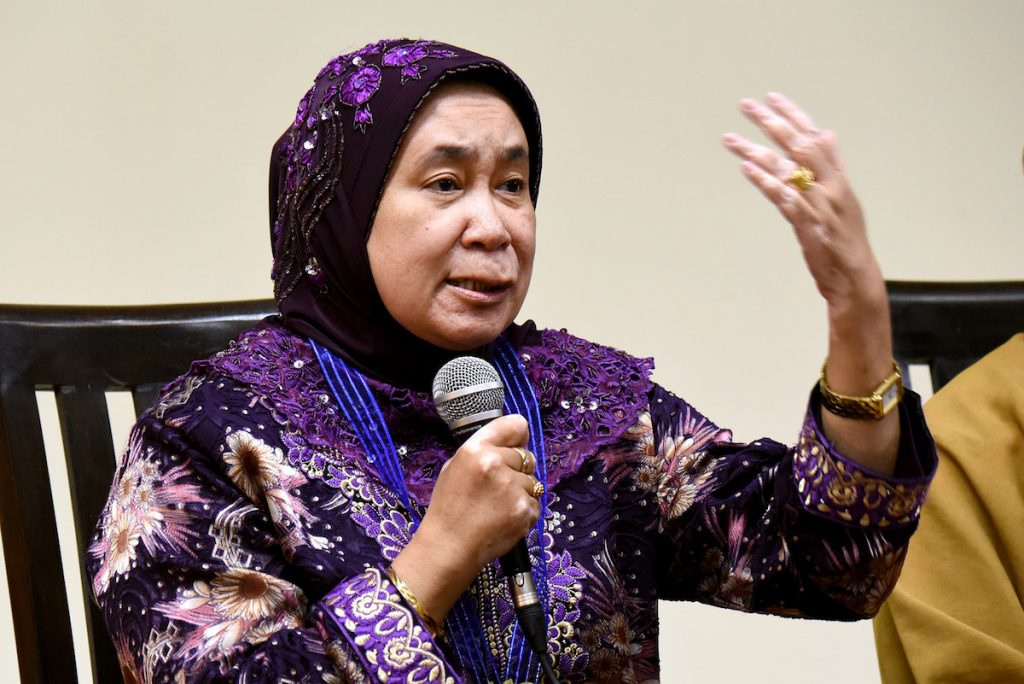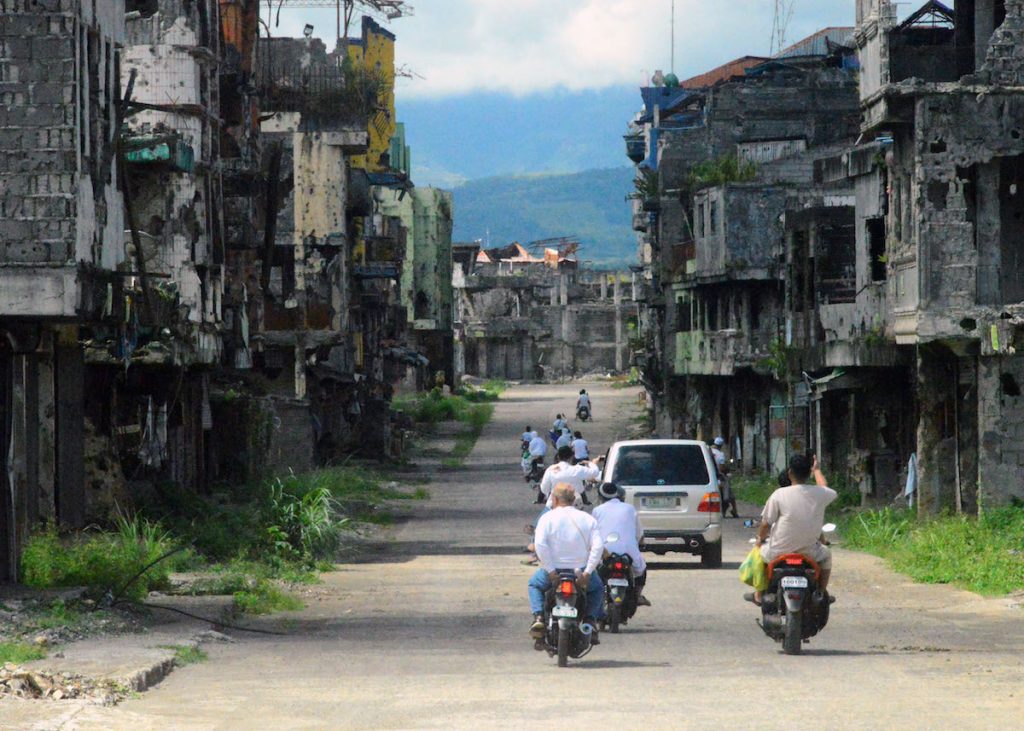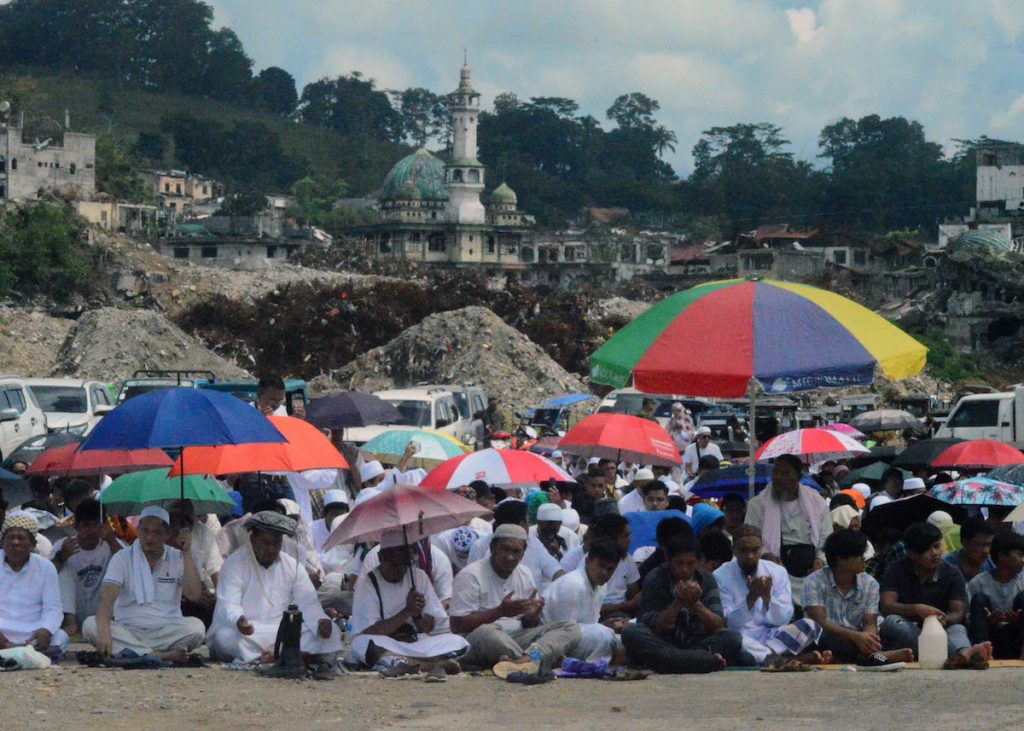A disenfranchised population sidelined by the snail-paced rehabilitation of a devastated city provides a deep well of recruitment for “imported ideologies.”
This was the warning made by an Islamic educator during an interfaith forum at a Catholic school of Theology in Manila on Feb. 19.
“All wars emanate from the sin of arrogance and a dominant group’s belief that other groups are lowly, with no right and no voice in dictating their fates,” said Macrina Hannah Morados.
Morados, dean of the University of the Philippines’ Institute of Islamic Studies, said it is happening in the city of Marawi, which was devastated by the five-month war in 2017.
Almost three years after the conflict, people claimed that the government has refused to listen to their needs.
Morado said anger over the languishing pace of rehabilitation plays into what she called as the “false us-against-the-world vision of Islam” as preached by extremist groups.
In an interview with LiCAS.news, Morados said the sidelining of the local population in reconstruction plans has caused disappointments among residents.

Families have been banned from returning and rebuilding their homes in the most devastated areas of Marawi dubbed “Ground Zero.”
The government initially said the military needed to complete the task of clearing the 250-hectare battlefield that sprawls across 24 villages.
President Rodrigo Duterte, however, approved plans to turn part of Ground Zero into a sprawling military camp.
Morados described Marawi as a cosmopolitan center before the five-month war that displaced almost half a million people.
But she said the development worldview of central planners from the national capital collided with local needs and aspirations.
“They want to build high-rise buildings and huge structures,” she said. “That’s not what the [people of Marawi] want.”
“They like their simple lives. They like development that respects the tenets of Islam,” she said.

Duterte had earlier promised to rebuild Marawi. But he angered the people last year when he announced that it was no longer a priority.
Members of the private Marawi Reconstruction Conflict Watch told LiCAS.news in November last year that the blame has been placed on the people of Marawi for the incursion of the gunmen in 2017.
“It appears clear to us that we don’t really matter at all,” said the group in a statement.
Morados said the government “should go back to the basics” consult the people. “Go to the masses,” she said, adding that “anger is boiling again.”
“Marawi, I’m afraid, is one of the precipitating factors in the rise of a new breed of violence,” she said.
“Whether we like it or not, there is another kind of Islam and it gives a real problem,” said the professor. “While we exert all efforts to combat this, government policies on Marawi fuel this problem.”
Norodin Alonto Lucman, former vice governor of the Autonomous Region in Muslim Mindanao, agreed with Morados.
“I don’t know how the state can consistently lie about this monumental failure,” said Lucman, who was hailed a hero after he opened his home to Christians trapped in the city during the fighting.
He said the rehabilitation program for Marawi has become “a series of cover ups and grand scams.”
Duterte, who has spent his presidency establishing closer ties with China, angered the local population when he boasted about the Asian giant’s willingness to aid in the rehabilitation of Marawi.
But two Chinese state companies bidding for the ambitious program have been blacklisted by the World Bank for corruption.

Beijing’s reported crackdown on Muslim Uyghurs in the country’s western borderlands also prompted warnings from residents of Marawi.
More than religion, “socio-economic injustices” spur much of Mindanao’s conflicts through the years.
“Historical injustice in Mindanao is all about land-grabbing,” said Morados. “Muslims and [tribal people] still remember how they were pushed to the margins.”
She said Marawi has become a symbol of “unjust governance” that continues to mire the region.
“There is a disconnect between aspirations and the government’s response to problems that result in so much frustration among Muslims who feel neglected,” she added.
A report released by inspector general of the U.S. Operation Pacific Eagle in the Philippines early this month warned that massive corruption problems in the rebuilding program of Marawi have given extremists a new foothold.
“Extremist recruitment has outpaced the public benefits of rehabilitation in Marawi since the [Islamic State] insurgency was defeated there in October 2017,” read the report.






